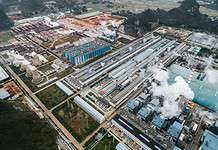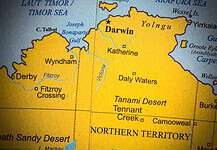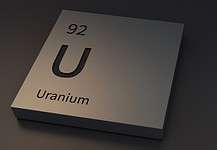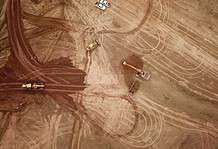DEBATE is continuing about the future of Tasmania’s Tarkine region, after two mine proposals won federal environmental approval in as many weeks: a controversial move that provoked criticism from both pro-conservation and pro-mining groups.
Shree Minerals’ $20 million iron ore mine at Nelson Bay River received the official green light in late July, as Environment minister Mark Butler overturned an initial rejection, stipulating 30 strict conditions to help protect the area.
This was the second federal approval for Nelson Bay River mine, after the first was successfully challenged by environmentalists. Venture Minerals’ Riley Creek mine was similarly successful, with Mr Butler giving final environmental approval for the two-year DSO project in early August, subject to 37 conditions.
Venture’s mine, 125km from the Port of Burnie in the state’s northwest, is expected to inject about $40 million into the Tasmanian economy.
The rulings were a blow to conservationists, who claimed mining in the environmentally sensitive area would threaten the endangered Tasmanian devil. The marsupial’s numbers have fallen severely since the late 1990s, with the rise and spread of the carcinogenic devil facial tumour disease wiping out 80 per cent of the species.
The Tarkine, the state’s last disease-free area, is one of the last regions in Tasmania with a population of healthy devils.
In an interesting twist, the mine approvals were similarly criticised by pro-mining groups, who argued that thei comprehensive conditions would deter future developers from investing in the area.
Conditions of the Shree Minerals approval included the prohibition of travelling to the mine outside daylight hours; regular clearin of roadways and surroundings; and allowing mine employees to only travel by bus, to
reduce traffic flow to and from the site.
Mr Butler also ordered Shree Minerals to make a “substantial contribution” to Tasmanian devil protection efforts, including a compulsory $350,000 donation.
A $48,000 fine would be imposed should any Tasmanian devils be killed by mine vehicles, if the total number killed equaled more than two over a 12-month period. Similar conditions were also imposed on Venture’s proposal.
Tasmanian Minerals Council representative Terry Long said the conditions were only in place to appease conservationist groups, and made the area look unattractive to future mining prospects.
“The conditions in total now add up to something like a million dollars up front, and our view is that they’re largely in response to noise from the green movement rather than being necessary,” Mr Long said.
“It will be tough in the future; it’s just something you have to recognise if you want to do business in Tasmania.”
Disputes are expected to continue into the foreseeable future, after environmental groups declared they would fight any decisions allowing the progression of a mine.
The Tarkine National Coalition is reportedly preparing to challenge Venture’s Riley Creek mine in the state’s Resource Management and Planning Appeal Tribunal. The Tarkine region has a long mining history, and was the site of many pro-mining rallies in recent months.
Waratah-Wynyard mayor Robbie Walsh, a regional representative of the Tarkine, stated his community would be economically devastated if the mining projects were overturned in further court challenges.
“The state is on its knees for employment and it’s very important that this project gets up and running for many reasons,” Mr Walsh said.
Resources minister Bryan Green also expressed dismay at the prospect of a continued fight.
“[It’s] very disappointing because the umpire’s decision in my view ought to be final with respect to the approvals that have been given,” he said.
ABC News reported that local Labor MP Sid Sidebottom was pleading with environmentalists not to challenge the approvals.
Battle rages in Tarkine as mines gain approval
Advertisement







































